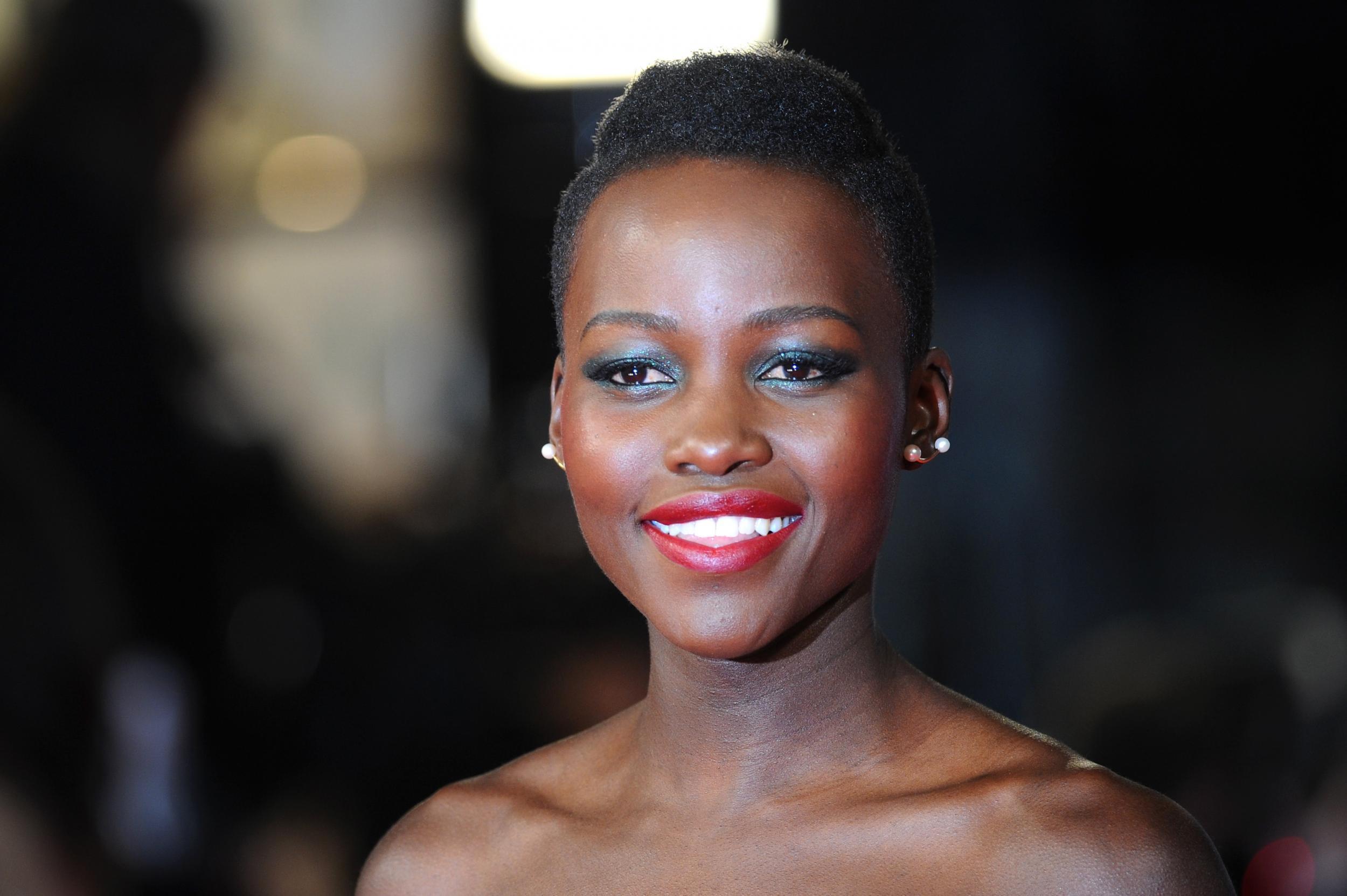Lupita Nyong’o on skin lightening: My self-worth was compromised by adverts
'I felt that I was not considered beautiful because of my complexion', says the actress

Lupita Nyong’o has described the effect of being exposed to advertisements for skin lightening creams as an adolescent.
Nyong’o grew up in the Kenyan capital of Nairobi before moving to the US and studying film and theatre in Massachusetts. Her big break arrived in the form of her Oscar-winning performance in 12 Years a Slave.
The 33-year-old says her self-worth was damaged by growing up with skin lightening adverts propagating the false notion of lighter skin as more beautiful.
In an interview with The Times, Nyong’o said she was surrounded by adverts showing successful women as those with lighter skin from a young age, a message she began internalising as a teenager.
“My teenage years were plagued by the idea that light skin was better skin. There were adverts on TV about a woman trying to get a job and she only got it when she applied skin lightening cream. I felt that I was not considered beautiful because of my complexion. My self-worth was deeply compromised in those years."
Skin lightening is a controversial but lucrative market. Global Industry Analysts predict the industry will be worth £14 billion by 2018.
The actress Emma Watson said she no longer models for beauty products which “do not always reflect the diverse beauty of all women” after being criticised in March for being the face of Lancôme's “Blanc Expert” in 2011.
The product was described as a “skin whitening product” on its website but the description explains that it is for reducing pigmentation marks and dark spots rather than bleaching skin.
In July, the rapper Azealia Banks defended the use of skin lightening products, arguing that it is a woman’s right to use whatever products they wish.
“What’s the difference between wearing a weave and changing my skin colour?” she asked fans during a Facebook live. “No one was upset when I was wearing a 30inch weave and tearing out my edges [...] you guys loved it. I don’t understand what the difference is.”
Join our commenting forum
Join thought-provoking conversations, follow other Independent readers and see their replies
Comments
Bookmark popover
Removed from bookmarks